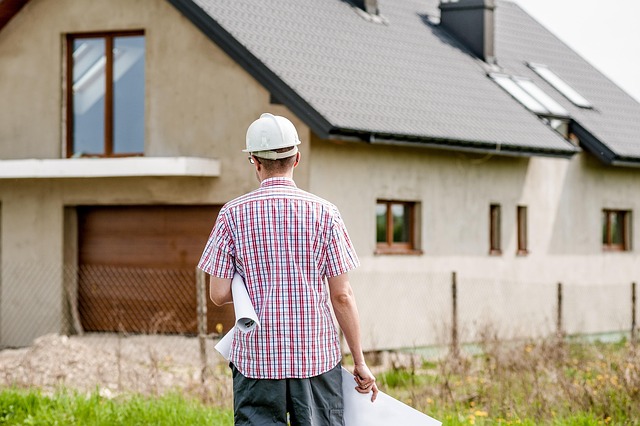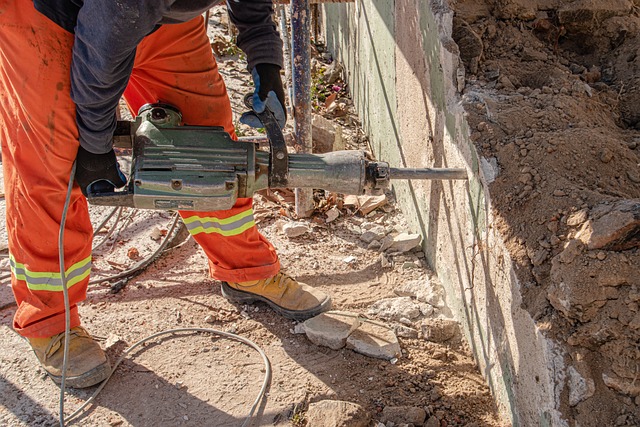Roofing contractors play a vital role in maintaining and enhancing buildings' structural integrity and aesthetic appeal. They offer diverse services, from new installations to repairs and renovations, tailoring their expertise to various roof types and project needs. By considering climate, budget, and building codes, these professionals source high-quality materials and employ specialized techniques for durable and secure roofs. Their work encompasses more than just shingle replacement, including complex tasks like flashing installation, ventilation systems setup, and drainage solutions to prevent water damage. Choosing the right roofing contractor is crucial; look for experts with proven experience, positive customer reviews, knowledge of various styles and materials, and a strong understanding of local building codes. They guide clients in selecting suitable roofing materials based on climate, style, and budget, ensuring structural protection, added property value, and enhanced visual appeal. Safety is paramount; contractors adhere to strict protocols and industry standards, using proper gear and ensuring compliance with regulations. A well-installed and maintained roof boosts property value by up to 15% and saves long-term costs through leak prevention. Clear communication with contractors is essential for successful projects.
Roofing contractors play a pivotal role in safeguarding your home or business from the elements, ensuring structural integrity and enhancing property value. Understanding the intricacies of roofing installation and repair is crucial for any homeowner. This comprehensive guide delves into the key aspects, from identifying qualified contractors with essential skills to navigating the process of installing or repairing roofs. Learn about common repairs, material selection, safety protocols, and effective communication strategies for a successful roof project. Discover why choosing the right roofing contractor matters for your peace of mind and property investment.
Understanding the Role of Roofing Contractors

Roofing contractors play a pivotal role in ensuring the structural integrity and aesthetic appeal of buildings. Their expertise lies in installing, repairing, and maintaining various types of roofs, from traditional shingles to metal panels. These professionals are not just limited to new constructions but also offer vital services for renovations and emergency repairs, making them an indispensable part of any property owner’s network.
When a roof is installed or repaired, roofing contractors assess the specific needs of each project, taking into account factors like climate, budget, and building codes. They source high-quality materials, ensuring longevity and durability, and employ specialized techniques to guarantee a secure fit that stands the test of time. Their work encompasses more than just replacing or fixing damaged shingles; it involves intricate tasks such as flashing installation, ventilation systems setup, and ensuring proper drainage to prevent water damage.
Key Qualities to Look for in a Roofing Contractor

When choosing a roofing contractor, it’s essential to select professionals with proven expertise and reliable service. Look for contractors who possess comprehensive knowledge of various roofing styles and materials, ensuring they can offer tailored solutions for your specific needs. Experience counts; a seasoned contractor will understand local building codes and have handled similar projects before, minimizing potential errors or delays.
Reputation is another critical factor. Opt for roofing contractors with positive customer reviews and an excellent track record. You can verify their credibility by checking online testimonials, local business listings, or asking for references from previous clients. Additionally, insurance coverage and licensing are must-haves to protect against any unforeseen risks during the installation or repair process, ensuring peace of mind for homeowners.
The Process of Roofing Installation: Step-by-Step Guide

Roofing installation is a complex process that requires expertise and precision. Here’s a step-by-step guide outlining what to expect when working with roofing contractors. It begins with an in-depth assessment of your property, during which contractors identify any issues or potential problems with your current roof. This initial evaluation is crucial for tailoring the installation process to your specific needs.
Next, the roofing team prepares the surface by ensuring it’s clean, dry, and free from debris. They may also inspect the structure’s framing to ensure it’s secure and level. Following this, they start laying down underlayment, a protective layer that shields against moisture and provides an extra barrier against leaks. The contractors then install shingles or roofing tiles, meticulously securing them with nails or screws at precise intervals. Once the main roof is in place, they add flashing around chimneys, vents, and other penetrations to prevent water from seeping into these areas. Finally, a thorough inspection is conducted to ensure the new roof meets safety standards and provides adequate protection for your property.
Common Roofing Repairs and When to Call a Professional

Roofing contractors often encounter various common repairs, such as damaged or missing shingles, leaks in the roof underlayment, and loose or broken flashing around vents and chimneys. These issues can typically be addressed by homeowners through simple DIY methods or with the aid of a do-it-yourself guide. However, more complex problems like structural damage from extreme weather conditions, rot caused by prolonged moisture, or significant section replacements require the expertise of professional roofing contractors.
Calling a roofing contractor is essential when repairs involve extensive work, when the roof’s age and condition suggest it might need a complete replacement, or when there are signs of water intrusion that can’t be immediately addressed. Roofing professionals bring specialized knowledge, high-quality materials, and advanced techniques to ensure that any repair is made safely, correctly, and to last.
Choosing the Right Roofing Materials: A Contractor's Perspective

When roofing contractors take on a new project, one of their primary tasks is to guide clients in selecting the most suitable roofing materials for their properties. This involves assessing factors like climate, architectural style, and budget to ensure longevity and aesthetic appeal. For instance, in regions with frequent snowfall, a contractor might recommend stronger, more durable shingles that can withstand harsh weather conditions. Conversely, for tropical areas, lightweight, water-resistant materials could be the preferred choice.
Contractors play a vital role in educating clients about the benefits of different roofing solutions. They can highlight energy-efficient options like metal roofing, which offers excellent corrosion resistance and can significantly reduce heating and cooling costs. Alternatively, asphalt shingles are cost-effective and versatile, suitable for various home styles. Ultimately, the right roofing materials not only protect a structure but also contribute to its overall value and visual appeal, making it essential for contractors to offer expert advice in this area.
Ensuring Safety and Compliance during Roofing Projects

When it comes to roofing projects, safety is paramount. Roofing contractors are responsible for ensuring that every step of the installation or repair process adheres to strict safety protocols and industry standards. This includes using proper safety gear such as hard hats, fall protection equipment, and gloves to mitigate risks associated with working at heights and handling hazardous materials.
Compliance with local building codes and regulations is equally crucial. Roofing contractors must be well-versed in the relevant rules and guidelines to ensure that their work meets the required standards. This involves obtaining necessary permits, following specific installation methods, and conducting thorough inspections to guarantee a safe and durable roof for years to come. Proper adherence to these practices not only protects the homeowners but also prevents potential legal issues and ensures the longevity of the roofing system.
The Impact of Quality Roofing on Property Value

A well-installed and maintained roof is not just about protection from the elements; it significantly influences a property’s value. Roofing contractors play a pivotal role in ensuring that every component, from shingles to underlayment, is secure and functional. A high-quality roofing job can enhance curb appeal, making homes or commercial buildings more attractive to potential buyers.
In real estate terms, an appealing exterior, including a robust roof, can increase property value by up to 15%. This is because first impressions matter; a well-maintained roof gives off a sense of care and investment, translating to a higher perceived worth. Moreover, a quality roof provides long-term savings by preventing costly repairs or replacements due to leaks or damage caused by poor installation or subpar materials.
Tips for Effective Communication with Your Roofing Contractor

When hiring roofing contractors, clear and consistent communication is key to a successful project. Begin by providing detailed information about your requirements, including the type of roof, materials preferred, and any specific design elements or repairs needed. This helps contractors offer tailored solutions and estimates.
During the process, stay engaged and ask questions. Clarify timelines, costs, and any potential challenges. Effective communication ensures everyone is aligned, leading to a more efficient and high-quality roofing installation or repair. Promptly addressing concerns can also prevent misunderstandings and ensure your project stays on track.
